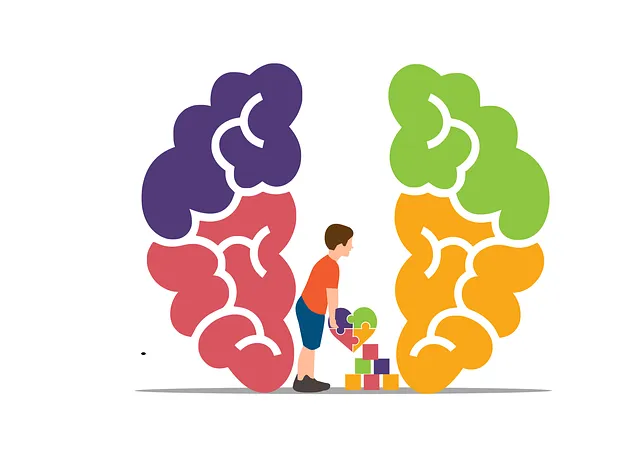Community Outreach Programs (COPs) bridge gaps in healthcare access, focusing on mental well-being. Kaiser Permanente's Lone Tree initiative includes a confidential mental health phone line, workshops, and stigma reduction efforts. These programs empower communities to take charge of their mental health, fostering trust and recovery through accessible support and technological connections. By addressing unique community challenges and promoting cultural sensitivity, these outreach strategies create inclusive environments for improved public mental health.
Community outreach programs play a pivotal role in enhancing healthcare accessibility. This article explores strategic implementations, drawing insights from successful initiatives like Kaiser Permanente’s mental health support and Lone Tree’s focused approach. We delve into effective communication tools, such as the Kaiser Permanente mental health phone line, to bridge care gaps. By examining these case studies and implementation strategies, we aim to inspire and guide organizations in fostering stronger communities through targeted outreach.
- Understanding Community Outreach Programs
- Kaiser Permanente's Mental Health Support
- Lone Tree: A Focused Initiative
- Phone Lines: Accessing Care Effectively
- Implementation Strategies for Success
Understanding Community Outreach Programs

Community Outreach Programs (COPs) are strategic initiatives designed to bridge the gap between healthcare services and underserved communities. These programs aim to promote accessibility, foster understanding, and enhance overall well-being. One notable example is Kaiser Permanente’s mental health phone line in Lone Tree, which offers a confidential space for individuals seeking support. This service exemplifies how COPs can provide essential resources directly to those who might otherwise face barriers to care, such as stigma or lack of awareness about available services.
Through various activities like resilience-building workshops, Mental Health Policy Analysis and Advocacy, and Mental Illness Stigma Reduction Efforts, COPs empower communities to take charge of their mental health. By combining direct service provision with community engagement, these programs build trust, encourage help-seeking behaviors, and promote recovery and restoration. Such initiatives are vital in creating inclusive environments where everyone has the chance to thrive.
Kaiser Permanente's Mental Health Support

Kaiser Permanente, a renowned healthcare organization, has made significant strides in addressing mental health concerns within its community. Their outreach efforts focus on providing accessible support to individuals in need, particularly in areas like Lone Tree. Through dedicated phone lines and various programs, they offer a safe space for those grappling with mental health issues. This initiative extends beyond traditional healthcare services by targeting specific challenges such as burnout prevention, self-esteem improvement, and trauma support services.
The organization’s commitment to community wellness is evident in its year-round activities, ensuring that mental health resources are not just available but also easily accessible. By utilizing technology, they connect individuals with trained professionals who can provide immediate assistance, making a tangible difference in the lives of those seeking help. This proactive approach to mental health support is transforming communities, one conversation at a time.
Lone Tree: A Focused Initiative

In many communities, mental health services often lack sufficient reach and accessibility, leaving vulnerable individuals without adequate support. Recognizing this gap, Kaiser Permanente initiated a focused program in Lone Tree, aiming to bridge the divide through targeted community outreach. This initiative prioritizes connecting with at-risk populations, offering crucial resources, and providing guidance on crisis intervention. By integrating emotional intelligence into their approach, mental health professionals can build trust and foster meaningful relationships within these communities.
The program employs a comprehensive strategy that includes risk assessments to identify individuals in need and tailor interventions accordingly. Through partnerships with local organizations, they ensure a network of support, promoting open conversations about mental well-being. The Kaiser Permanente mental health phone number for Lone Tree serves as a vital link, offering confidential assistance and directing people to the right resources. This focused initiative reflects a progressive step towards enhancing community mental health services, especially in addressing the unique challenges faced by various demographics.
Phone Lines: Accessing Care Effectively

In today’s digital era, communities are increasingly recognizing the importance of accessible mental health services. One effective way to reach a wider audience is through dedicated phone lines, such as the Kaiser Permanente mental health phone number in Lone Tree. These hotlines offer immediate support and resources for those seeking assistance with their mental wellness. By providing 24/7 access to trained professionals, communities can ensure that individuals experiencing stress or other mental health challenges can find relief promptly.
The implementation of these services goes beyond just availability; it also involves enhancing healthcare provider cultural competency training. This training equips professionals with the skills to address diverse populations’ unique needs and barriers to care. By integrating mental wellness promotion and stress reduction methods into community outreach programs, organizations like Kaiser Permanente contribute to a more holistic approach to public health, fostering environments where everyone feels supported and empowered to prioritize their mental well-being.
Implementation Strategies for Success

Implementing successful community outreach programs for mental health initiatives requires a strategic approach tailored to the unique needs and characteristics of the target audience in Lone Tree, as exemplified by organizations like Kaiser Permanente. The first step involves extensive community engagement and collaboration with local leaders and stakeholders to understand their specific challenges and preferences. This includes hosting informational sessions, conducting surveys, and utilizing feedback hotlines like the Kaiser Permanente mental health phone number for continuous dialogue.
Effective strategies for outreach include adopting Empathy Building Strategies that foster understanding and connection. Organizing interactive Stress Management Workshops and incorporating Self-Awareness Exercises can engage participants and promote positive mental health practices within the community. By combining these approaches with a commitment to cultural sensitivity and accessibility, outreach programs can achieve lasting impact, ensuring that services are tailored to meet the diverse needs of the Lone Tree population.
Community outreach programs, as demonstrated by initiatives like Kaiser Permanente’s mental health support and Lone Tree, effectively bridge healthcare access gaps. By utilizing innovative strategies such as phone lines for care accessibility, these programs ensure that individuals in need can receive vital services promptly. When implemented with careful planning and focused initiatives, as outlined in this article, community outreach can significantly improve healthcare outcomes and foster stronger, healthier communities. Remember that organizations like Kaiser Permanente and the Lone Tree project serve as valuable models, encouraging us to expand access to care for all.






